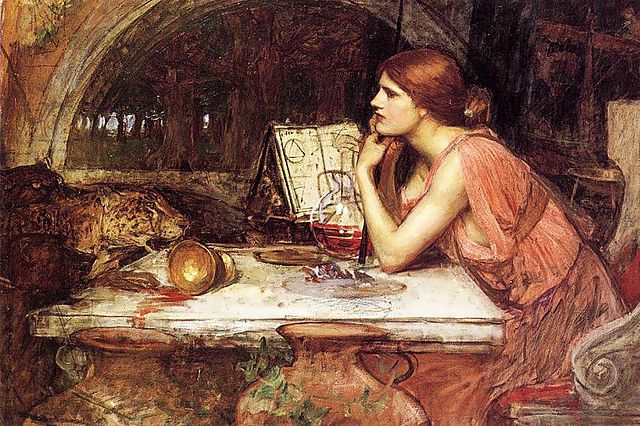Think that persecution for witchcraft was a medieval invention? Then you’d be wrong. People have feared magic from the beginning of time, and accusations of witchcraft have formed the basis of trials since history began. The writers of Classical Greece and Rome have left many of these cases from their time well-documented. Allegations of magic and witchcraft in these ancient societies were used in just the same way as they were in medieval and Reformation Europe: to scapegoat the marginalized and for the unscrupulous and ambitious to rid themselves of rivals- or consolidate power. In essence, ancient magic trials formed the template for these later periods of persecution.
Ancient magical trials emphasis how ingrained the fear of the ‘other’ is in the human psyche – and how authority can manipulate fear. Accusations of magic were frequently used to explain unfortunate occurrences within communities or settle scores. However, some of the spates of sorcery trials that occurred periodically Roman and Greece arose during times of social and cultural flux. These trials of both men and women often had political and religious motives. They show that in late antiquity especially, accusations of magic could spread from individuals to whole communities, like a disease. These ten trials from across the Graeco Roman world act as a snapshot of ancient attitudes to magic.

The Sorceresses of Athens
The ancient Greeks were not known for their toleration of other people’s cultures. Their tendency to dismiss all other languages as sounding like ‘bar bar bar’ led to the formulation of the term ‘barbarian’ as a label for non-Greek cultures. This term went far beyond simply meaning ‘all foreigners sound the same.’ It was a way of invalidating anything that was not Greek by labeling it as inferior- or dangerous. This belief was taken to another level in the fourth century BC Athens when the state accused at least two women of being sorceresses or pharmakis because of their involvement with foreign practices.
The first woman was Theoris of Lemnos, who is mentioned indirectly in Demosthenes speech Against Aristogeiton. Theoris’s servant informed on her and Demosthenes tried her for supplying ‘drugs and charms.’ For this, the ‘filthy sorceress’ as Demosthenes termed, was executed. Other sources refer to Theoris as a seer or mantis who the court condemned for impiety (asebeia). Asebeia was believed to bring about the wrath of the gods on the whole state if left unpunished. So, to encourage reporting of cases of impiety, slaves were guaranteed exemption from torture when giving evidence-which explains why Theoris’s servant came forward voluntarily.
What exactly constituted impiety becomes evident in the case of Ninos was also prosecuted for asebeia and sorcery. Demosthenes described her as a priestess or hiereia and claimed that Ninos created a private religious cult or thiasoi, dedicated to the Thracian sky god, Sabazios. Aside from the fact that this cult was for a foreign god, thiasoi, in general, were suspect because they were private and so their activities could not be monitored. However, Ninos was initially charged, not with impiety but with brewing love potions for young men, and in the course of the case, her cult came out. Like Theoris, the Athenian state executed her.
Demosthenes’s accusations of magic and impiety against both women gained credence because of their links to places outside Athens. Although Lemnos was an Athenian possession, it was not Athens itself. By emphasizing it as Theoris’s place of origin, Demosthenes was marking Theoris as other, even though she was nominally Athenian. It was enough to create a charge of impiety; acting against the Greek gods. The same taint clung to Ninos. The initial charge of magic marginalized her, but the added association with a foreign cult damned her.
This suspicion of foreign practices and their association with dangerous magic continued. It manifested itself in the next set of trials in Rome in the first century AD.

